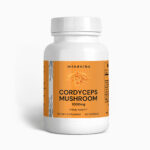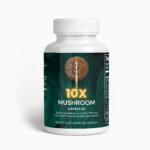
“Coffee Connoisseur’s Guide to Choosing the Best Organic Beans”
As the popularity of organic food and beverages continues to rise, coffee lovers are no exception. In fact, choosing the best organic coffee beans has become just as important as selecting a brewing method or finding the perfect roast. But with so many options available, it can be overwhelming to navigate the world of organic coffee. That’s why we’ve created this guide for coffee connoisseurs. We’ll provide you with all the information you need to make an informed decision when it comes to selecting the best organic beans for your cup of joe. From different varieties of coffee beans to the benefits of choosing organic, we’ll cover everything you need to know. So sit back, sip on your favorite coffee, and let’s dive into the world of organic coffee beans together.
1. Introduction to Coffee Connoisseurship and Organic Beans
Coffee connoisseurship has become a passion for many people around the world. It’s not just about getting a quick caffeine fix, but more about experiencing the complexity and richness of different coffee beans. To truly appreciate coffee, start by understanding the various types of beans, from typical to organic, and their unique flavors.
Organic coffee is grown without the use of harmful pesticides and fertilizers, making it much healthier for both consumers and the environment. It’s also more sustainable, as organic farming practices aim to preserve the soil and conserve water resources. Organic coffee beans are often considered to be of higher quality and have a greater depth of flavor than conventionally grown beans.
Coffee connoisseurship is also about understanding the different brewing methods and how they affect the taste of your coffee. Whether you prefer drip, pour-over, or French press, each method brings out different nuances and characteristics of the beans. With so many variables to consider, the journey to becoming a coffee expert can be both exciting and rewarding. Whether you’re a coffee lover or in search of more sustainable coffee options, organic beans are definitely worth a try.
2. Why Choose Organic Coffee Beans?
Choosing organic coffee beans is not simply a matter of preference, but a conscious decision to prioritize your health and the environment. Here are three compelling reasons why:
- Organic farming reduces exposure to harmful chemicals. Conventionally grown coffee beans are often sprayed with synthetic pesticides, herbicides, and fertilizers to control pests and increase yields. Consuming these chemicals can have detrimental effects on human health, including cancer and reproductive disorders. Organic coffee, on the other hand, is grown without the use of these harmful substances, making it a safer choice for consumers.
- Organic farming benefits the environment. Pesticides and fertilizers used in conventional coffee farming can contaminate soil, water, and air, resulting in negative impacts on biodiversity and ecological balance. Organic farming practices, on the other hand, prioritize soil health and promote natural pest control methods, resulting in healthier ecosystems and reduced carbon emissions.
- Organic coffee tastes better. Organic coffee beans are grown using natural and sustainable methods, resulting in a higher quality product with rich and complex flavors. Additionally, organic farming practices prioritize the health of the soil, allowing coffee plants to thrive and produce more flavorful beans. Choosing organic coffee not only benefits your health and the environment, but your taste buds as well!
When you choose organic coffee, you’re making a conscious decision to support a healthier and more sustainable world. By consuming organic coffee, you’re reducing your exposure to harmful chemicals, supporting eco-friendly farming practices, and enjoying a better-tasting cup of coffee. So why not make the switch today?

3. Understanding Coffee Bean Varieties: Arabica vs Robusta
Coffee is one of the most popular drinks in the world. But have you ever stopped to think about the different types of coffee beans that are used to produce that delicious cup of coffee? In this article, we will be discussing the two most common coffee bean varieties; Arabica and Robusta.
Arabica Beans
Arabica beans are the most popular coffee beans in the world, accounting for around 60% of global coffee production. They are grown at higher altitudes, typically above 600 meters, and require a lot of rainfall to grow. Arabica beans have a delicate flavor profile with notes of chocolate, caramel, and fruit. They are also lower in caffeine compared to Robusta beans. This makes Arabica beans perfect for those who enjoy a smoother and more flavorful coffee.
Robusta Beans
Robusta beans are the second most popular coffee bean variety and account for around 40% of global coffee production. They are grown at lower altitudes, typically below 600 meters, and require less rainfall compared to Arabica beans. Robusta beans have a stronger and more bitter flavor profile with notes of wood, rubber, and nuts. They are also higher in caffeine compared to Arabica beans. This makes Robusta beans perfect for those who enjoy a more robust and intense coffee.
Final Thoughts
Both Arabica and Robusta beans have their own distinct flavor and caffeine profiles. However, it’s worth noting that the quality of the coffee is not solely determined by the type of beans used. There are many other factors that can affect the taste of your coffee, such as the roasting process, brewing method, and water temperature. Ultimately, choosing the right coffee bean variety comes down to personal preference and the flavor profile that suits your taste buds best.

4. The Importance of Origin and Roasting Method
When it comes to coffee, the origin and roasting method are crucial factors that determine the flavor and quality of the final cup. Whether you prefer a light, medium, or dark roast, the way the beans are grown and processed play a significant role in the taste and aroma.
First and foremost, the origin of the coffee beans can greatly impact the flavor profile. Different regions around the world produce beans with varying strengths, acidity, and sweetness. For example, South American coffees tend to have a softer acidity, while African coffees are often more fruity and complex. Additionally, the altitude, climate, and soil in which the beans are grown can also influence the taste.
Equally important is the roasting method used to prepare the beans. Roasting is the process by which the green coffee beans are transformed into the flavorful, aromatic beans we know and love. The degree of roasting affects the taste and strength of the coffee. Lighter roasts preserve the natural flavors and acidity of the beans, while darker roasts develop a deeper, bolder flavor. Also, the roasting time and temperature can impact the caffeine content and overall acidity.
- In conclusion, coffee is a complex and diverse beverage with a rich history and culture that extends far beyond the cup. By understanding , you can elevate your coffee experience and appreciate the unique characteristics of each brew.
- Takeaway: The next time you savor a cup of coffee, take note of the origin and roast. Consider experimenting with different types of coffee to discover your personal flavor preference.

5. Factors to Consider When Selecting a Coffee Bean Supplier
Freshly roasted coffee requires the right supplier, and it’s not just about the price. There are several .
1. Quality
Quality should be one of your primary considerations when selecting a coffee bean supplier. The quality of the beans ultimately determines the flavor and aroma of the coffee. Your supplier should be able to provide you with high-quality beans that meet your customers’ expectations. Consider factors such as the farming practices and roasting techniques used by the supplier. The best coffee beans come from reputable sources, such as top-rated roasters or direct-trade farms.
2. Consistency
Consistency is crucial when selecting a coffee bean supplier. You want to ensure that the beans you receive are of the same quality each time you place an order. This is important because customers won’t appreciate if the taste or quality of the coffee varies from time to time. Make sure that your supplier is able to provide you with consistent quality and delivery times.
3. Price and Value for money
While quality and consistency are top priorities, you should also consider the price and value for money you’re getting from your coffee bean supplier. Look for a supplier who can offer you a variety of coffee bean options at affordable prices. This doesn’t mean you should go for the cheapest option available; instead, look for suppliers who offer a great balance between price and value for money. Keep in mind that good quality coffee can be more expensive due to the sourcing, roasting, and packaging processes involved.
In conclusion, choosing the right coffee bean supplier is a vital step to ensure your customers get the best quality coffee. Quality, consistency, and value for money are key factors that you should consider when selecting a supplier. Take the time to research your options, and don’t hesitate to ask for samples or customer testimonials to make sure the coffee beans meet your requirements.
6. Tasting and Evaluating Organic Coffee Beans
When it comes to organic coffee beans, tasting and evaluating them can be a true delight. However, it is important to know what to look for in a quality organic coffee so that you are not wasting your hard-earned money. Here are some tips on how to properly taste and evaluate organic coffee beans:
First, pay attention to the aroma of the coffee. Good quality organic coffee should have a rich, pleasant aroma that is not too overpowering. It’s important to note that the aroma should also be consistent with the roast level of the coffee.
Next, take a sip and let the coffee coat your mouth. Observe the body of the coffee by focusing on how heavy or light it feels in your mouth. A good organic coffee should have a well-rounded body that is not too thin or too heavy. Pay attention to any lingering aftertaste as well.
Lastly, evaluate the overall flavor and acidity of the coffee. The flavor should be balanced and not too bitter, while the acidity should be bright and tangy. It’s important to note that the flavor profile should also be consistent with the notes on the package.
In conclusion, can be a rewarding experience if done correctly. By paying attention to the aroma, body, flavor, and acidity of the coffee, you can ensure that you are getting good quality organic coffee. Don’t be afraid to try new flavors and experiment with different brewing methods to find your perfect cup of organic coffee.
7. Brewing Techniques to Enhance the Flavors of Organic Coffee Beans
`
As a coffee lover, you surely know that brewing techniques play a crucial role in enhancing the natural flavors of organic coffee beans. How you handle your coffee beans can make a significant difference in the taste and overall quality of your coffee experience. Here are some brewing techniques that can help you bring out the delicious flavors from your organic coffee beans:
- French Press: The French press is a classic method known for producing coffee with rich and robust flavors. The trick is to use a coarse grind of the coffee beans and to steep them for the right amount of time. This brew method allows the coffee beans to steep for a longer time, allowing the flavors to fully develop. French Press coffee is perfect when you want a full body coffee with a strong coffee flavor.
- Pour-Over: The pour-over method involves pouring hot water over a filter containing coffee grounds, which drips into a cup or carafe. It provides a clean, light-bodied coffee with a distinctive flavor. Consistency in pouring and water temperature control is important in this method for an even flavor extraction and a rich coffee taste. If you want to taste the specific flavor characteristics of a coffee variety, try the pour-over method.
- Espresso: Properly brewed espresso is an art that requires attention to detail and technique. For a full-bodied and rich taste, use a fine grind coffee bean that can be brewed quickly and at high pressure. The espresso method typically produces a bold, rich brew, perfect for those early mornings or when you want a quick caffeine hit.
No matter what brewing method you choose to brew your organic coffee beans, always remember that the quality of coffee beans matters. Organic coffee beans are known for having a natural, distinctive taste that is not only delicious but also provides numerous health benefits. By following these brewing techniques, you can discover the flavors and aroma of your coffee and achieve that perfect cup of coffee every time.
`
By following these tips you can guarantee that the organic beans you bring home will be of the highest quality and flavor. Coffee connoisseurs soon will be able to make an educated guess as to the taste and aroma of the freshest organic coffee beans on offer. With the proper research and preparation you can have the freshest cup of organic goodness without sacrificing on flavor. Enjoy your journey through the world of organic coffee beans!

























